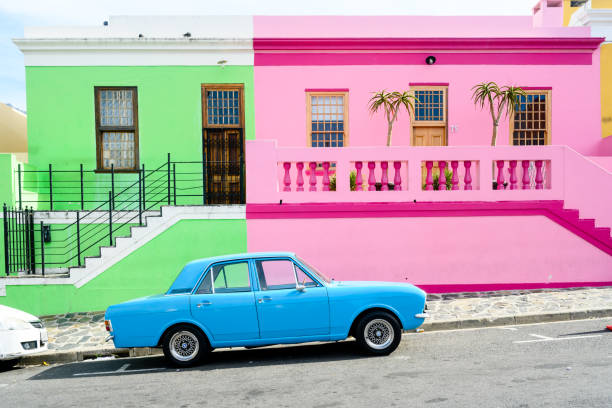Islamic history is easily forgotten among the brightly coloured rows of houses and new haunts.

If you are practising Muslim, May is a special time as it’s when Ramadan is celebrated. Usually a community event, this year lockdown has changed the celebrations.
Three years ago myself and a friend spent the last bit of Ramadan in Bo-Kaap, the Islamic epicentre of South Africa and a neighbourhood I dearly miss.
A trip to Cape Town is not complete without walking the cobbled streets of the Bo-Kaap.
One of Cape Town’s most historic and culturally significant neighbourhoods, it charms the crowds, but it seems as though right after the selfies have been snapped against the backdrop of the colourful houses, visitors climb back into their tour bus and head for their next destination.
In the context of cultural value, the Bo-Kaap is more important than ever since the tentacles of gentrification started knocking on its door. Sure, the giant hotel groups opening here offer Cape Malay cuisine, but the general mood is lost.

Picture: iStock
Houses that sold for R500,000 a few years ago now raise millions from investors and property developers (before a global pandemic screwed up plans even more). While the neighbourhood was being rebuilt and restructured over the last few years, the toll it’s taken on a tight-knit community is unclear.
Tourists, who will soon be visiting again, will still not fully emerge themselves in the significance of the area, which is important for Bo-Kaap to retain its spirit and people.
The Bo-Kaap’s allure has drawn hotel chains to secure property in the area, which brings in some income, but also Tripadvisor complaints. Tourists love Bo-Kaap for populating their Instagram feed but have a problem when the muezzin starts reciting adhan early in the morning.
The area is home to South Africa’s oldest mosque, Auwal Masjid, which can be traced back to 1793. It’s linked to religious scholar Imam Abdallah ibn Qadi Abdus Salam, also known as Tuan Guru, who was released from Robben Island after being in jail for 12 years and exiled to Cape Town.
While imprisoned, he wrote a book on Islamic jurisprudence. His handwritten works on Islamic jurisprudence became the main reference of the Cape Muslims in the 19th century.
Picture: iStock
From then on Auwal Masjid became a central part of South African religious history, becoming the first site where Muslims were permitted to pray in the country. Nine other mosques have been built in the area, including the architecturally impressive Boorhaanol Mosque, Quwwat Ul Islam Mosque and Nurul Mohamadia Mosque.
But Islamic history is easily forgotten among the brightly coloured rows of houses and new haunts, like Bo-Op, a DeStijl-themed design cooperative that sells South Africa-inspired items.
Across the road from Bo-Op, at the Bo-Kaap museum which turns 43 this year, we met Shireen Narkedien, a local tour guide who uses the museum as a starting point to explain the Bo-Kaap to outsiders. She started her introduction to the area by explaining who really built Cape Town.
History books say the Dutch East India Company was the main catalyst behind the culture of the Mother City, but Malaysian, Ceylonese and Indonesian slaves played a bigger role.

Picture: iStock
Slaves played in a huge role in shaping the Afrikaans language, culture and cuisine. It could be argued that the Islam Shafti denomination practised in the Bo-Kaap is much more Afrikaans than the three sister churches. The slaves spoke the language in kitchens long before the Van der Merwes adapted it.
After the museum, which has a number of permanent exhibitions on the contemporary and slave history of the Bo-Kaap, the area during apartheid and its religious significance, Narkedien was still eager to share more of her neighbourhood.
Three years ago we heard “As-Salaam-Alaikum” often and she introduced us to everyone who greeted her. Then outsiders were welcome, even though it was a double-edged sword as they were buying up the Bo-Kaap.
This year building has halted, and I’m sure the same community members are still inside. Back then we walked to Biesmiellah’s for chilli bites and koeksisters as a symphony of mosques called the community together for Dhuhr prayers.
How different it must be now.
For more news your way, download The Citizen’s app for iOS and Android.
Support Local Journalism
Add The Citizen as a Preferred Source on Google and follow us on Google News to see more of our trusted reporting in Google News and Top Stories.






